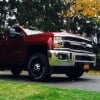Towing in the extreme: My 2014 1500 & 33’ 5th Wheel RV
-
Similar Content
-
- 5 replies
- 2,255 views
-
- 19 replies
- 9,792 views
-
-
Recently Browsing 0 members
- No registered users viewing this page.
-
Forum Statistics
247.5k
Total Topics2.6m
Total Posts -
Member Statistics
-
Who's Online 15 Members, 0 Anonymous, 980 Guests (See full list)














Recommended Posts
Archived
This topic is now archived and is closed to further replies.